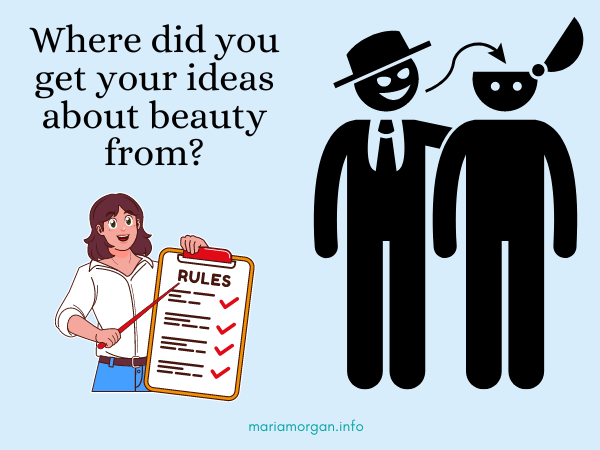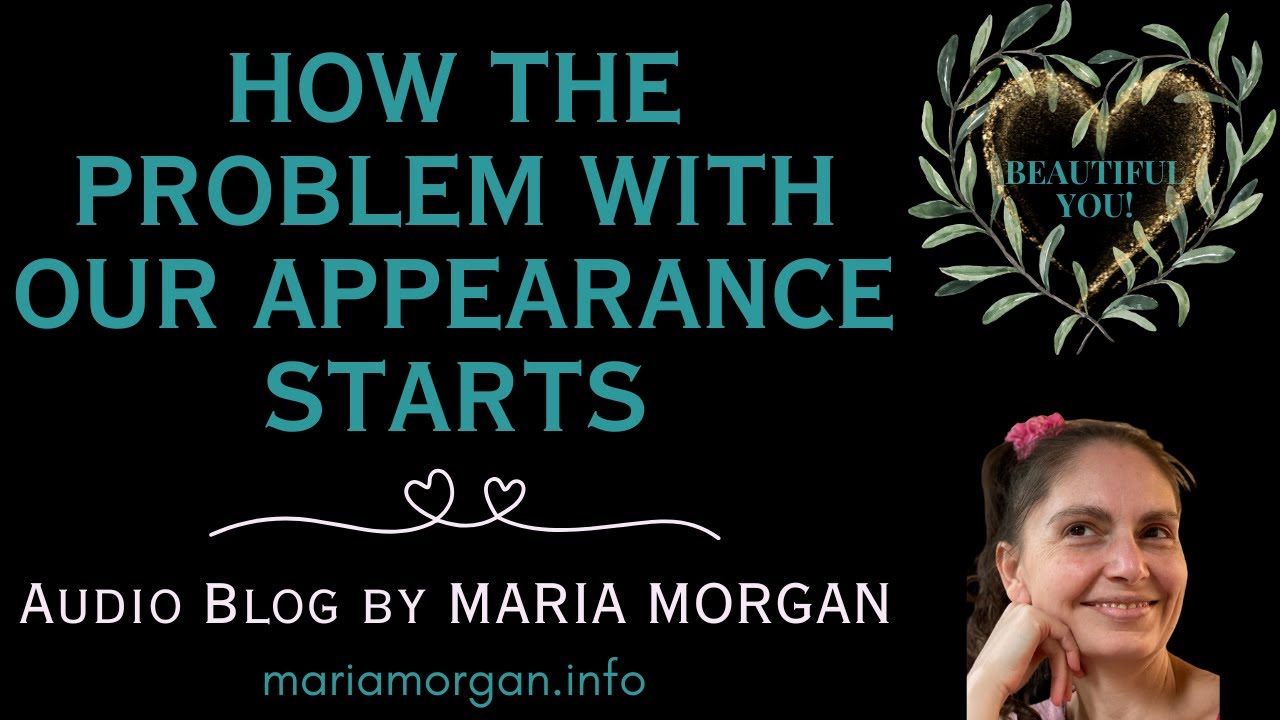We get messages about how we should look throughout our lives.
The culture in most of the world today gives us the message that the way we look is important, and some ways of looking are better than others.
Most of us grow up receiving these messages, either explicitly or implicitly.
These messages may be positive and/or negative.
We may be criticised by people around us for the way we look, or told we should try to change the way we look.
Alternatively, we may get praised for the way we look.
We receive these messages from a multitude of sources:
- We may see our parents or caregivers taking great pains to try to change or maintain the way they look, and get the impression that that's a necessary part of life: something we have to do, like paying our bills.
- We may overhear people bemoaning weight gain, or expressing jealousy about the way someone else looks.
- We may watch films or TV programmes in which the hero or heroine always tend to have certain physical characteristics, and assume that you need to look like that in order to be popular, interesting or successful in life.
- We may see people being ridiculed or bullied online for the way they look.
Repetition reinforces these messages.
We hear these messages repeated so often that they just seem like truth.
After all, why would everyone propagate these messages if they weren't true?
We internalise these messages.
And so we get sucked into the false notion that there are objective standards to determine whether people look good or not.
We begin to measure ourselves and our peers against these standards.
We judge everyone, including ourselves against the so-called 'beauty' standards.
'An appearance hierarchy' is formed in our minds that reflects the messages we have received from the world around us.
And we want to be near the top if we can!
And who can blame us? Being at the top means being loveable, attractive, desirable, self-controlled, worthy, and being at the bottom means being disgusting and unimportant.
So, when we fail to live up to how we think we should look, we feel terrible because our worth is on the line.
When we see people who fail to meet the standards, we may feel sorry for them.
We live our lives judging how we look, and how other people look, and we feel enormous pressure to tick the boxes and measure up.
And this is how the problem starts.
It is a process of being brainwashed our whole lives until there seems like there is no reality beyond the one our minds have bought into.
We try desperately to conform with the so-called 'beauty' standards.
We are trapped in an endless cycle of trying to improve or maintain the way we look.
Or, in desperation, we give up trying, and resign ourselves to feelings of inferiority and unworthiness.
All these negative, pressured thoughts take their toll, and rob us of a lot of enjoyment of life.
The extent to which we are impacted varies, but most people view people's appearance through the filter of this conditioning.
Healing becomes possible through awareness.
Fortunately, once we realise that the beliefs that we've been buying into aren't true, there is a permanent way out of this suffering.
Conclusion
The pervasiveness of the messages we receive which tell us that there is a right way and a wrong way to look can lead us to confuse subjective conditioning with objective truth.
However, when we realise how our opinions, perceptions and preferences have been formed - through a process of indoctrination - we can start to reclaim our power.
And now it's over to you... what do you think?

- What are the messages you've received throughout your life about how people 'are supposed to' look?
- Where did you get your ideas about beauty from?
⍰ Parents?
⍰ Relatives?
⍰ Teachers?
⍰ Children at school?
⍰ Friends?
⍰ Bullies?
⍰ Books?
⍰ Magazines?
⍰ TV?
⍰ Movies?
⍰ Video games?
⍰ Advertising?
⍰ Social media?
- How would your life be different if you let go of all these second-hand ideas?
- Do you remember a time before you were impacted by them?
- How did these messages influence how you think and feel about your body?
Let me know in the comments below. I'd love to hear from you.
Reflecting upon our experiences and sharing them can help us get more clarity, and ultimately, more freedom!
Listen to this blog post on YouTube
Reach out if you'd like support
And if you'd like support healing your body image, check out my free resources or find out how you can work with me.
Subscribe to my blog
Share this blog post
If you've enjoyed reading this, you can share this post on social media by clicking on the relevant icons below.
